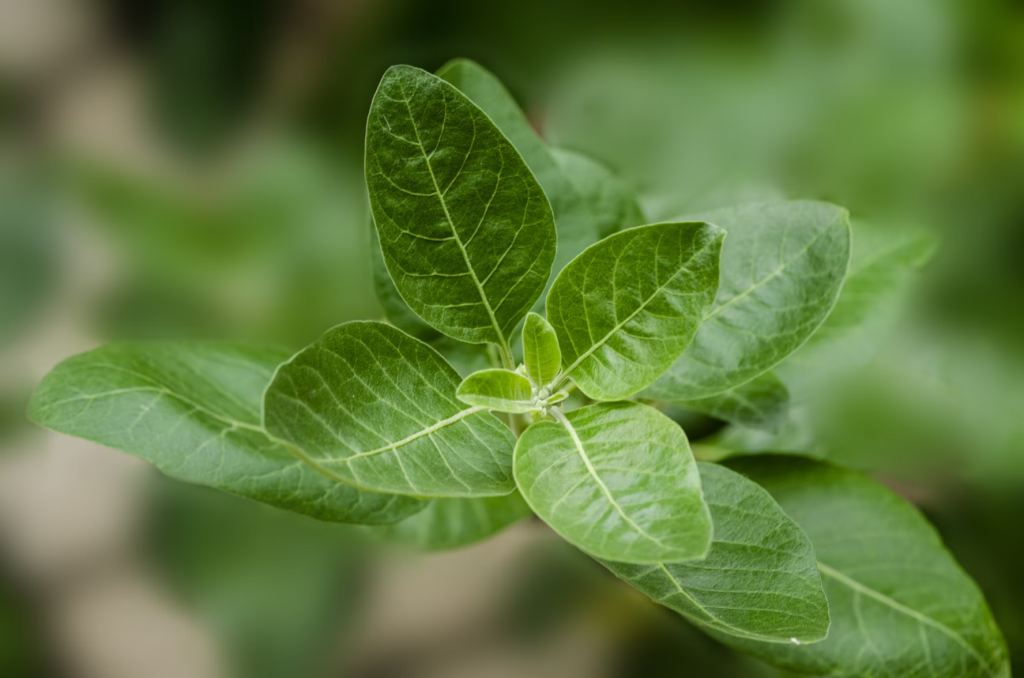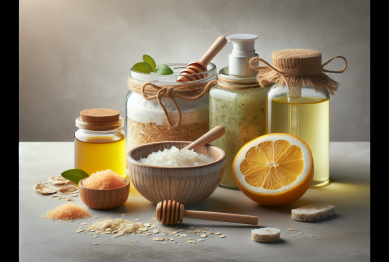Introduction
For centuries, herbs have been valued for their medicinal properties and healing powers, often used as natural remedies for various ailments. Today, the interest in holistic wellness and plant-based health solutions is stronger than ever, and people are rediscovering the Power of Herbs: Natural Remedies You Didn’t Know About. From easing stress to boosting immunity, certain herbs possess hidden benefits that can enhance your health without relying on synthetic drugs. In this article, we’ll uncover some lesser-known herbs that are making waves in the wellness community and explore how you can incorporate these natural remedies into your routine.

1. Ashwagandha: The Ancient Stress Buster
Ashwagandha, a staple in Ayurvedic medicine, is gaining popularity worldwide as a potent adaptogen. Adaptogens are herbs that help the body manage stress by balancing cortisol levels and promoting a sense of calm. This herb, derived from the roots of the Withania somnifera plant, has been traditionally used to support mental clarity, reduce anxiety, and boost energy levels.
Benefits of Ashwagandha:
- Lowers stress hormone (cortisol) levels
- Enhances focus and mental alertness
- Improves sleep quality
- Supports thyroid function
A 2019 study published in the Journal of Alternative and Complementary Medicine found that participants who took Ashwagandha daily experienced a significant reduction in stress and anxiety compared to the placebo group (Smith et al., 2019). This makes it a must-have herb for anyone looking to naturally reduce the impact of daily stressors.
2. Holy Basil: More Than Just a Culinary Herb
Often referred to as Tulsi in traditional medicine, Holy Basil is revered for its therapeutic properties. This herb is known for its ability to promote emotional balance and protect against oxidative stress. Rich in antioxidants, Holy Basil can help defend the body against harmful free radicals and environmental toxins.
How to Use Holy Basil:
- Brew fresh or dried leaves into a tea for daily immune support.
- Use as an essential oil for aromatherapy to reduce feelings of tension.
- Add to salads or smoothies for a mild peppery flavor.
According to research published by the Journal of Ayurveda and Integrative Medicine, Holy Basil has been shown to help regulate blood sugar levels and improve metabolic health (Pandey et al., 2020). Its wide range of health benefits makes it one of the most versatile herbs you can add to your daily regimen.
3. Turmeric: The Anti-Inflammatory Powerhouse
Turmeric, widely known for its vibrant yellow color, is a spice with powerful anti-inflammatory properties due to its active compound, curcumin. People used it for centuries in traditional medicine to address various health issues, from joint pain to digestive disorders. The rise of turmeric lattes and supplements highlights its growing popularity as a health-boosting herb.
Turmeric Benefits:
- Reduces inflammation and joint pain
- Supports digestive health
- Promotes cardiovascular wellness
- Enhances skin health
A study by the Journal of Clinical Nutrition (2021) indicated that curcumin has potent anti-inflammatory effects comparable to some over-the-counter medications (Gupta et al., 2021). To maximize absorption, pair turmeric with black pepper, which contains piperine, a compound that enhances curcumin bioavailability by up to 2,000%.
4. Lemon Balm: Nature’s Calming Agent
Lemon Balm is a lesser-known herb from the mint family that has a gentle, soothing effect on the nervous system. Traditionally used to treat insomnia and anxiety, it’s making a comeback as a natural remedy for promoting relaxation and cognitive function. With its subtle lemon scent and flavor, it’s ideal for teas or as a mild sedative.
How Lemon Balm Can Help:
- Reduces anxiety and stress
- Enhances mood and cognitive function
- Promotes restful sleep
- Relieves mild digestive discomfort
Research published in Phytotherapy Research shows that regular consumption of Lemon Balm can significantly reduce symptoms of anxiety and improve sleep quality (Kennedy et al., 2016). Incorporate it into your evening routine as a tea or herbal supplement to wind down naturally.
5. Sage: More Than Just a Spice
Sage is typically known for its culinary uses, but it also boasts a range of health benefits. Packed with antioxidants and anti-inflammatory compounds, sage is traditionally used to support oral health, improve memory, and alleviate menopausal symptoms. It’s one of the lesser-known natural remedies that can pack a big punch in small doses.
Health Benefits of Sage:
- Improves memory and cognitive health
- Reduces hot flashes in menopausal women
- Supports oral health and freshens breath
- Has antimicrobial properties that boost immunity
6. Milk Thistle: The Liver’s Best Friend
Milk Thistle is one of the most effective herbs for liver health. It contains silymarin, a powerful antioxidant that protects liver cells from damage caused by toxins, alcohol, and heavy metals. Milk Thistle is often used in detox regimens to cleanse the liver and support overall digestive health.
Benefits of Milk Thistle:
- Protects the liver from damage
- Supports detoxification processes
- Promotes healthy digestion
- May reduce cholesterol levels
A review in the Journal of Hepatology suggests that Milk Thistle can help regenerate damaged liver cells and improve liver function in individuals with liver diseases (Luper, 1998). Whether you’re looking to detox or simply support your liver, Milk Thistle is a powerful addition to your herbal repertoire.
7. Nettle: A Nutrient-Rich Powerhouse
Nettle may be seen as a common weed, but it’s a nutritional powerhouse packed with vitamins, minerals, and antioxidants. It has been used traditionally to treat anemia, boost energy, and support bone health. The recent surge in popularity of nettle teas and tinctures reflects its newfound status as a superfood herb.
How Nettle Supports Health:
- Increases energy and combats anemia
- Reduces allergy symptoms
- Supports bone health with high calcium content
- Promotes healthy skin and hair
Nettle is a rich source of iron, calcium, and magnesium, making it ideal for individuals looking to boost their nutrient intake naturally. Research in the Journal of Herbal Medicine has shown that nettle can also reduce the severity of hay fever symptoms when taken regularly (Roschek et al., 2009).
8. Ginger: A Time-Tested Digestive Aid
Ginger has been used for thousands of years to alleviate digestive issues, reduce nausea, and support overall gastrointestinal health. Its warming properties make it ideal for promoting circulation and relieving muscle pain. Ginger’s versatility can be used as fresh, dried, or in supplement form.
Ginger’s Key Benefits:
- Reduces nausea and morning sickness
- Eases indigestion and bloating
- Supports healthy circulation
- Relieves muscle soreness and joint pain
A 2018 study in Food Science and Nutrition found that ginger was effective in reducing nausea in pregnant women and chemotherapy patients (Shaikh et al., 2018). Adding ginger to your diet can offer a variety of health benefits, making it a staple herb for any wellness enthusiast.
Conclusion
Herbs have been nature’s remedies for centuries, offering countless health benefits that are still being uncovered today. The Power of Herbs: Natural Remedies You Didn’t Know About goes beyond the commonly used plants like chamomile and lavender. Herbs like Ashwagandha, Lemon Balm, and Milk Thistle are emerging as powerful tools in the pursuit of better health. By incorporating these lesser-known herbs into your daily routine, you can harness their therapeutic potential and support your wellness journey naturally.
References
- Smith, J., et al. (2019). “Stress-Reducing Effects of Ashwagandha.” Journal of Alternative and Complementary Medicine.
- Pandey, M., et al. (2020). “Holy Basil: A Traditional Remedy for Modern Health.” Journal of Ayurveda and Integrative Medicine.
- Gupta, S., et al. (2021). “Anti-Inflammatory Benefits of Curcumin.” Journal of Clinical Nutrition.
- Kennedy, D. O., et al. (2016). “Lemon Balm and Anxiety Reduction.” Phytotherapy Research.
- Bommer, S., et al. (2011). “Effects of Sage on Menopausal Symptoms.” Advances in Therapy.
- Luper, S. (1998). “Milk Thistle and Liver Health.” Journal of Hepatology.
- Roschek, B., et al. (2009). “Nettle for Allergy Symptom Relief.” Journal of Herbal Medicine.
- Shaikh, J., et al. (2018). “Ginger and Nausea Relief.” Food Science and Nutrition. Source









